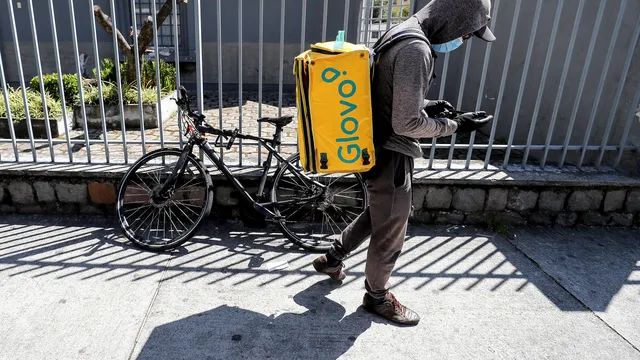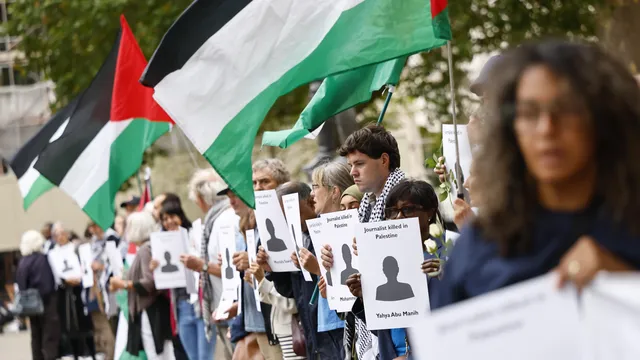A delivery driver was attacked on a sidewalk in Bucharest because he was a foreigner. A week earlier, the leader of AUR, the country's main far-right party, stigmatized this group of the population.
On August 26, the attack was filmed on a pedestrian crossing in Bucharest. A random man stopped next to the bicycle courier before punching him in the face. A conversation ensued between the two men, conducted in English:
"What's the problem?" asked the courier, who is originally from Bangladesh.
"Go back to your country. That's the problem," the attacker explained patronizingly.
"Why?"
"Because you're an invader!"
A witness to the scene, a plainclothes police officer, intervened and managed to knock the attacker to the ground after a chase. Once immobilized, the 20-year-old man began shouting that he was "defending his country."
The next day, the video began circulating on social media and in the media.
Although racist incidents are fortunately rare in Romania, other similar situations have increased in recent months.
Since it became known, the incident on Colentina Boulevard has been widely commented on by politicians, including President Nicușor Dan himself:
"I strongly condemn the attack on a young man who came to work in Bucharest and was beaten and humiliated just because he was not born here. Such incidents are unacceptable. In recent weeks, voices calling for hatred towards foreigners have spread in the public sphere. And these words have real, sometimes dramatic consequences," he said.
On August 19, Dan Tanasa, MP and vice-president of the Alliance for the Unity of Romanians (AUR), posted the following message on Facebook: "Refuse an order if it is not delivered by a Romanian. Stop encouraging the import of unskilled workers from Asia and Africa. Wake up!"
Following the attack on the Bangladeshi delivery driver, liberal MPs Marian Godina and Andrei Muraru announced that they would file a complaint against Dan Tanasa for inciting violence, hatred, or discrimination.
For his part, George Piprea, an MEP from the AUR, came to his colleague's aid, speaking of a staged event and an "alleged attack" aimed at discrediting the main political opposition, classified as far-right.
Today, there are nearly 130,000 workers from non-EU countries in Romania, mainly from the Indian subcontinent. They contribute around €500 million in taxes annually, while helping to boost the Romanian economy, especially in the construction sector, which is favored by Nepalese workers.
In an interview with the Europa Liberă website, Dumitru Tudor Gigea, director of the Center for Balkan Studies at the Faculty of Economics and Business Administration at the University of Iași, recalled that several million Romanian citizens have emigrated abroad since Romania joined the European Union in 2007, even though the country has seen "the strongest economic growth in Eastern Europe, alongside Poland and the Czech Republic."
According to the National Employment Agency, between January and October 2024, there were over 500,000 job vacancies in Romania, and the number of work visas for non-EU workers amounted to 100,000 per year since 2022. | BGNES

 Breaking news
Breaking news
 Europe
Europe
 Bulgaria
Bulgaria







